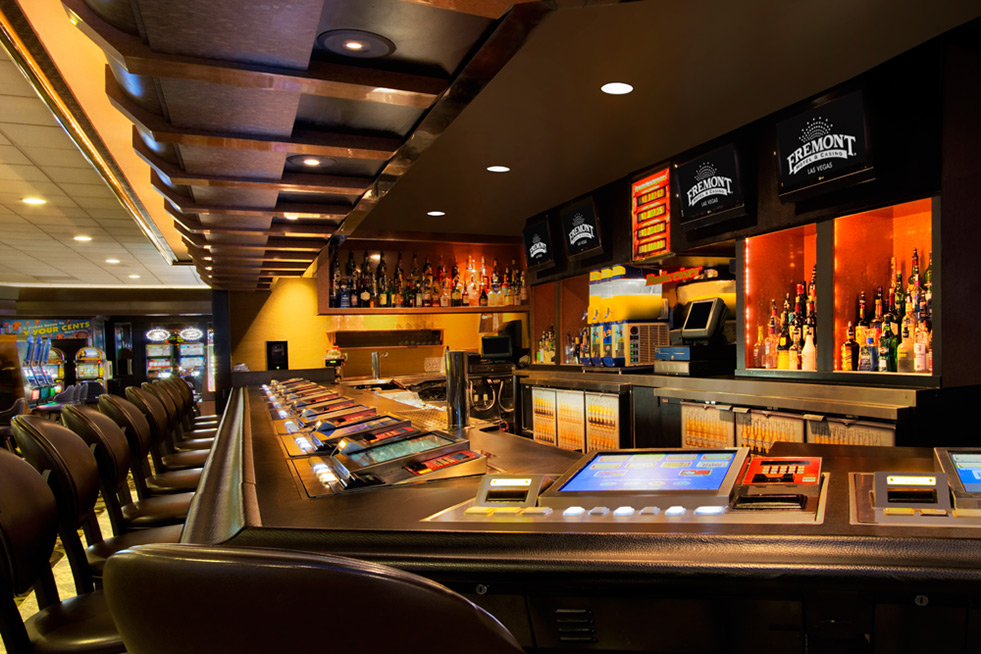Gambling In Bars
The reason why is because any bar can apply for a gambling license. The license fees are cheap, and this is a good way to bring in more customers and keep them entertained. Unlike tribal casinos, bars and other liquor establishments are limited on how many video lottery terminals they can have. Besides casinos, bars as well as restaurants that serve alcohol are allowed to have up to five VLT’s. Fraternal organizations are also allowed to have up to 10 VLT’s. All of these machines are the same as those that can be found at the state’s racetracks. The Ohio Casino Control Commission launched its 'Voluntary Exclusion' program earlier this year, modeling it after other states with similar efforts. Today, 15 out of the 23 states with commercial. The gambling section of the Constitution, Montana Code Annotated 2019 Article III: General Government Part III, Section 9 states, “All forms of gambling, lotteries, and gift enterprises are prohibited unless authorized by acts of the legislature or by the people through initiative or referendum.”.
HARRISBURG, Pa. (AP) — Top Republicans in Pennsylvania’s state Senate are pressing sweeping gambling legislation that would allow slot machine-like terminals in thousands of bars, restaurants, nonprofit social clubs and other businesses that hold liquor licenses.
The legislation could deliver new gambling tax dollars to a state treasury hurting from stay-at-home and shutdown orders issued by Gov. Tom Wolf to fight the spread of the coronavirus.

It also seeks to banish thousands of unregulated cash-paying “skill” game terminals from a wide array of establishments in Pennsylvania, including laundromats, pizza parlors, grocery stores, corner stores and bowling alleys, that do not have liquor licenses.

No Senate vote had been scheduled as of Tuesday as Senate Republican leaders worked to build enough support for it to pass. The bill is opposed by two erstwhile adversaries: casino owners in the nation’s No. 2 commercial casino state and Georgia-based Pace-O-Matic, maker of the software in most common skill terminals, marketed as Pennsylvania Skill games.
Wolf, a Democrat, is taking a dim view of it, warning in a statement from his office that state programs already fed by a “multitude” of legal gambling options, from slot machines in casinos to online lottery games, could lose dollars. He opposes the bill in its current form, his office said Tuesday.
Under a draft amendment, more than 10,000 bars, restaurants, hotels, golf course clubhouses and nonprofit social clubs with liquor licenses could install the so-called video gaming terminals, or VGTs. Counties that host casinos and municipalities could still vote to keep the machines out.
Senate Majority Leader Jake Corman, R-Centre, framed the bill not necessarily as an expansion of gambling, but as a way to get forms of unregulated gambling under control.
“The overall goal is to bring into the light the tens of thousands of unregulated games of skill and VGT devices that are out there in Pennsylvania today,” Corman said Tuesday.
Senate Republican budget analysts projected that taxing the VGTs could yield $200 million to $250 million a year, Corman said.
A major trade association for bars and restaurants, the Pennsylvania Licensed Beverage and Tavern Association, is asking its members to contact senators to support it.
The bill comes as distributors of VGTs — including executives from Golden Entertainment Inc. of Las Vegas — and Pennsylvania Skill games are giving tens of thousands of dollars in campaign contributions to lawmakers and political organizations.
A political action committee backed by a Williamsport-based coin-op machine distributor, Miele Manufacturing, which assembles Pennsylvania Skill games, has given more than $100,000 to lawmakers and political committees going back to last year.
Wolf, at least, might be sympathetic to banishing the skill games: His administration has accused the proliferating skill machines of siphoning more than $200 million in revenue last year from the Pennsylvania Lottery.
While the bill might leave legal room for Pace-O-Matic games in licensed-liquor establishments, the company sees it as a death knell.

“We can’t compete with them,” spokesman Michael Barley said. “Their games are flashier, more appealing. They look like things you would find in a brick-and-mortar casino. … Our games are slower, more methodical.”
/cdn.vox-cdn.com/uploads/chorus_image/image/57077089/Palms_6_4.0.jpg)
Gambling Barstool
(Copyright 2020 The Associated Press. All rights reserved. This material may not be published, broadcast, rewritten or redistributed without permission.)